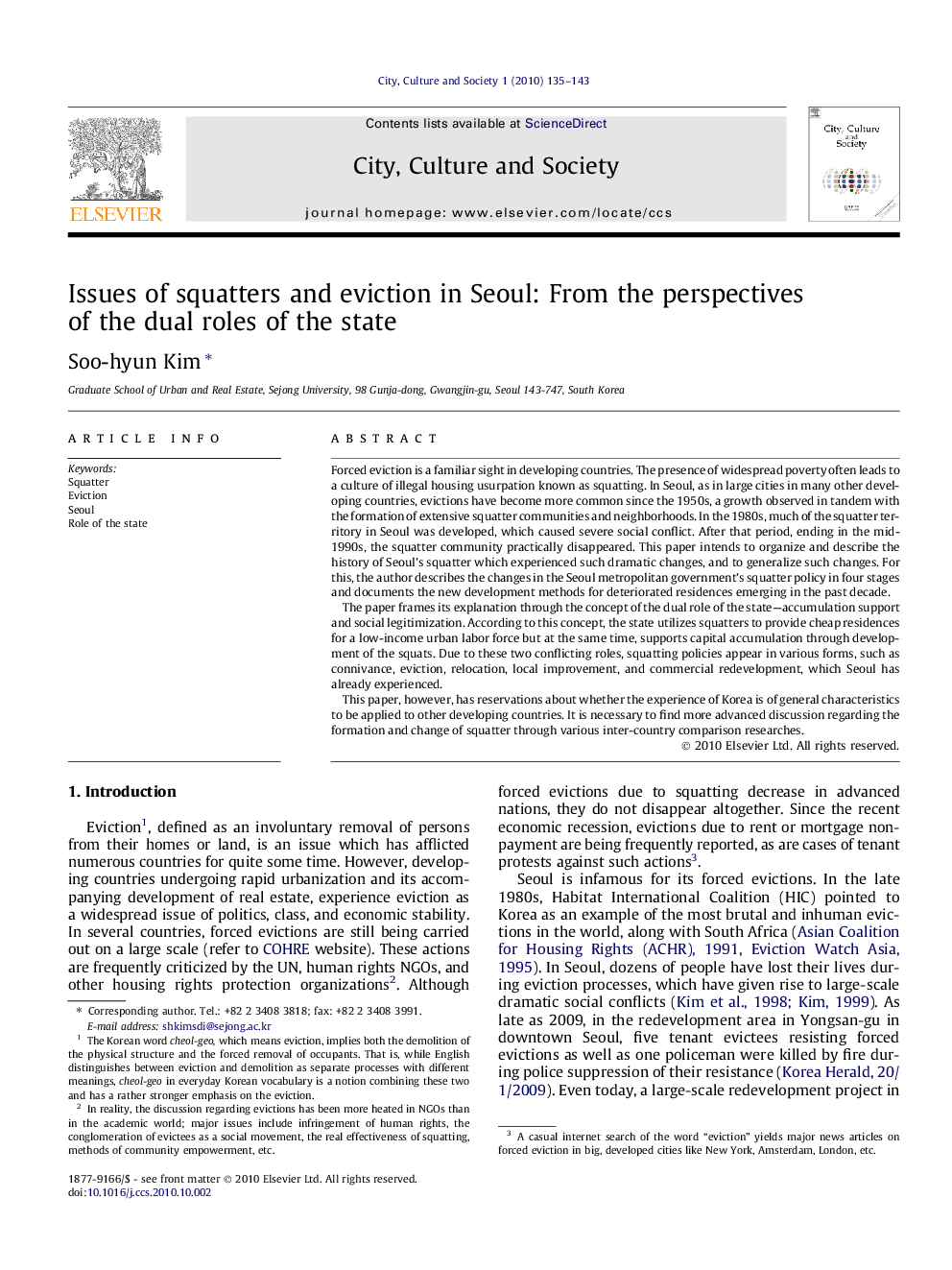| کد مقاله | کد نشریه | سال انتشار | مقاله انگلیسی | نسخه تمام متن |
|---|---|---|---|---|
| 5048478 | 1371014 | 2010 | 9 صفحه PDF | دانلود رایگان |

Forced eviction is a familiar sight in developing countries. The presence of widespread poverty often leads to a culture of illegal housing usurpation known as squatting. In Seoul, as in large cities in many other developing countries, evictions have become more common since the 1950s, a growth observed in tandem with the formation of extensive squatter communities and neighborhoods. In the 1980s, much of the squatter territory in Seoul was developed, which caused severe social conflict. After that period, ending in the mid-1990s, the squatter community practically disappeared. This paper intends to organize and describe the history of Seoul's squatter which experienced such dramatic changes, and to generalize such changes. For this, the author describes the changes in the Seoul metropolitan government's squatter policy in four stages and documents the new development methods for deteriorated residences emerging in the past decade.The paper frames its explanation through the concept of the dual role of the state-accumulation support and social legitimization. According to this concept, the state utilizes squatters to provide cheap residences for a low-income urban labor force but at the same time, supports capital accumulation through development of the squats. Due to these two conflicting roles, squatting policies appear in various forms, such as connivance, eviction, relocation, local improvement, and commercial redevelopment, which Seoul has already experienced.This paper, however, has reservations about whether the experience of Korea is of general characteristics to be applied to other developing countries. It is necessary to find more advanced discussion regarding the formation and change of squatter through various inter-country comparison researches.
Research highlights⺠Four stages of squatter policy in Seoul. ⺠Connivance, eviction and relocation, local improvement, and commercial redevelopment. ⺠Two conflicting state roles found. ⺠Providing cheap residences for a low-income urban labor force. ⺠Supporting capital accumulation through development of the squats.
Journal: City, Culture and Society - Volume 1, Issue 3, September 2010, Pages 135-143